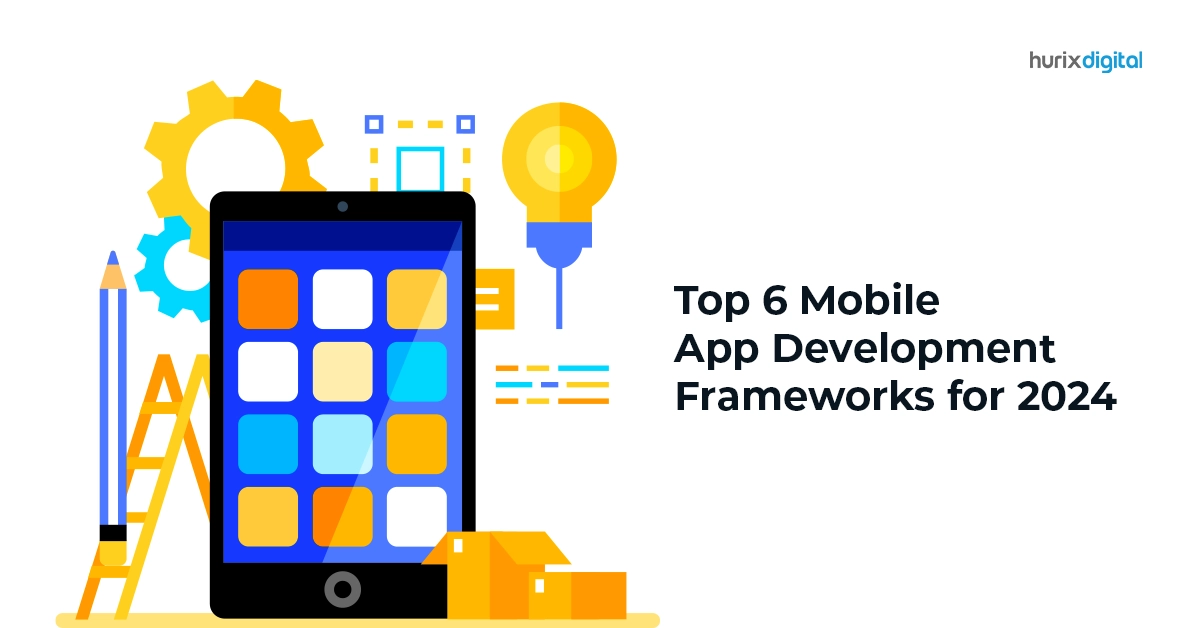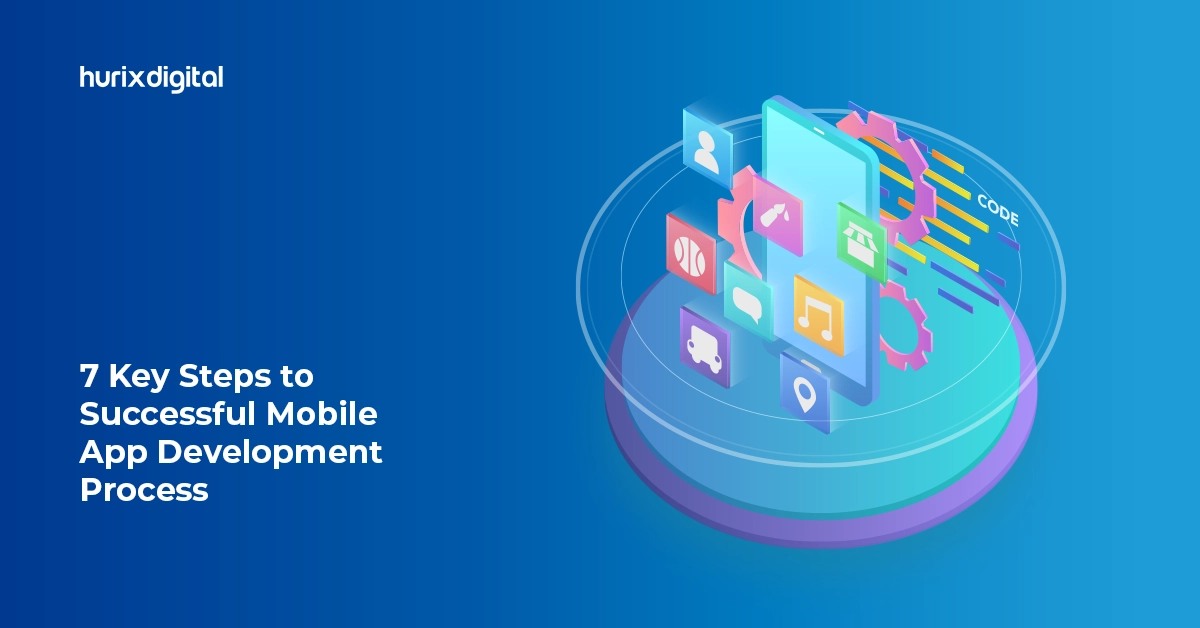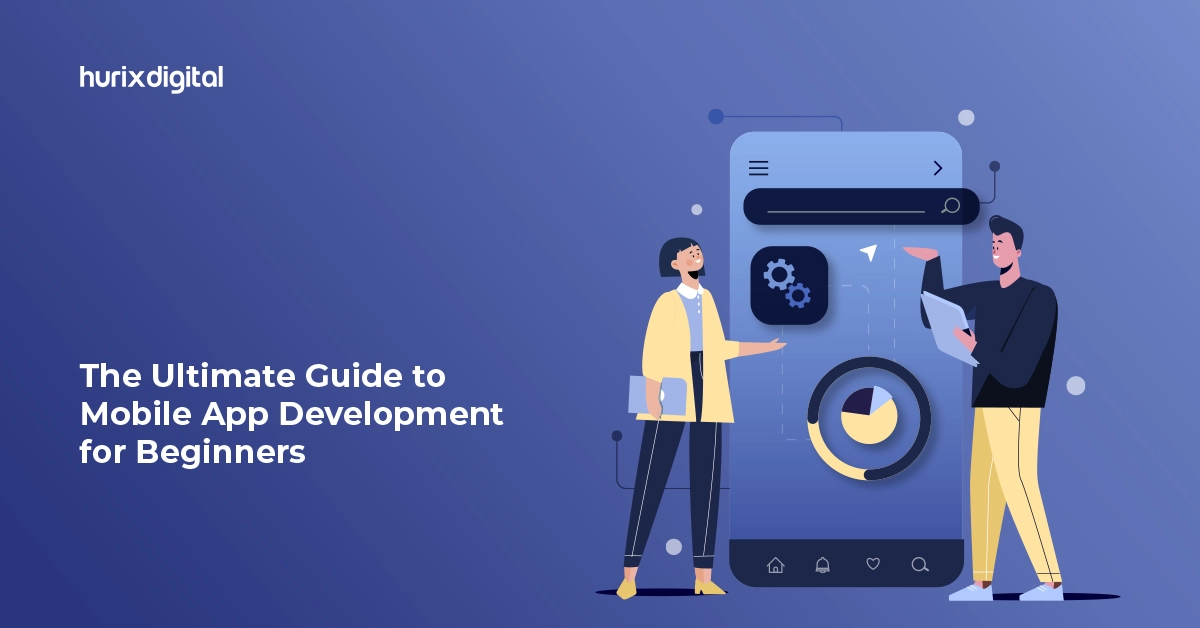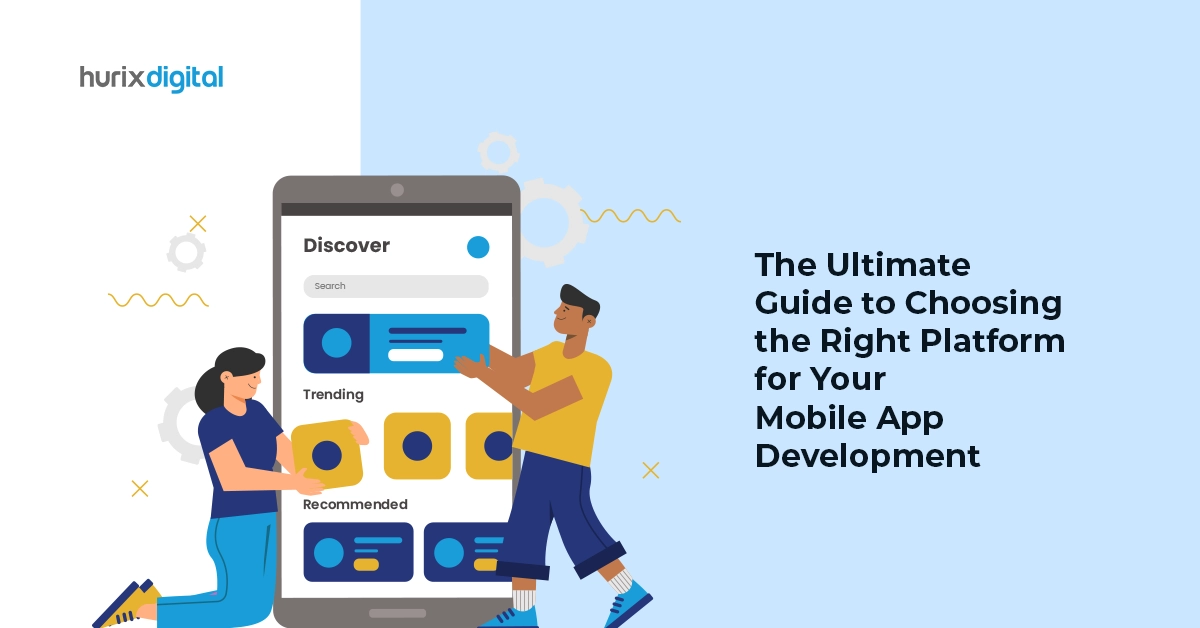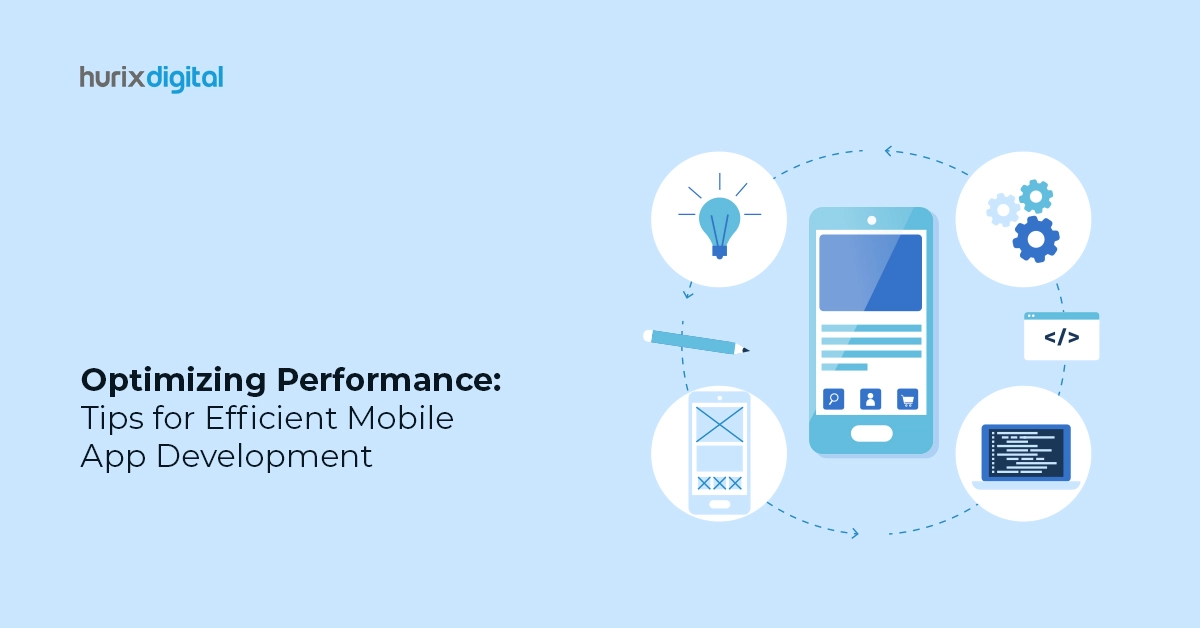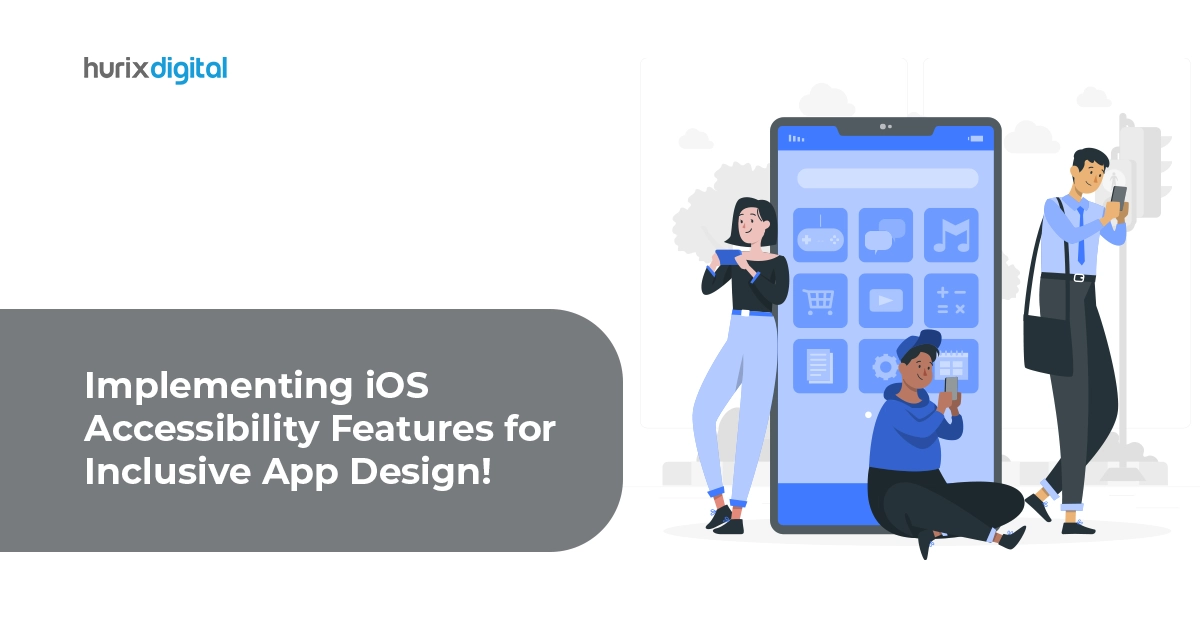Mobile apps have become a crucial part of our daily lives, and brands invest heavily in developing apps to reach a broader audience. With over 6.93 billion smartphone users globally, the mobile app industry is booming.
Recent studies highlight the pervasive nature of smartphone usage, with Americans scrolling through their phones over 200 times daily. Statista projects the global market size of mobile apps to soar to $673 billion by 2027, boasting a noteworthy CAGR of 8.58%. These statistics underscore the indispensable role smartphones play in our lives.
Mobile application development services use different frameworks to customize the development process. In this post, we’ll discuss the top 6 mobile app development frameworks for 2024. We’ll also highlight insights into tools that empower developers to create innovative and efficient applications. Read on!
Table of Contents:
- What is a Mobile App Framework?
- What are the Types of Mobile Application Frameworks?
- Top 6 Mobile App Development Frameworks for 2024
- Conclusion
What is a Mobile App Framework?
A mobile app framework is a platform or toolkit designed to create software that comes with programming interfaces, debugging tools, and other resources. Whether the developer is working on enterprise mobile application development or any other, using the framework can make the process easy.
Like toolkits for app builders, these frameworks provide a set of pre-made tools and guidelines to streamline the app production process. Consider them as ready to develop tools to simplify the process and deliver it to the client. It not only accelerates development but also ensures consistency and efficiency throughout the project.
What are the Types of Mobile Application Frameworks?
Developers have different options for mobile app frameworks to meet the needs of the platforms. Some of these are-
1. Native Development Frameworks
It is platform-oriented, where developers can work on creating apps for a single platform using tools. The two best examples are-
- iOS App Development: Developers use Swift and Objective-C for iOS apps.
- Android Development: Developers use Java and Kotlin.
2. Cross-Platform Development Frameworks
These types of frameworks are best for apps for different platforms without using multiple codebases. Examples are:
- React Native: This Facebook product helps developers build mobile apps using React and JavaScript.
- Flutter: This Google product helps in developing cross-platform applications and UI frameworks.
3. Hybrid Mobile App Development Framework
It combines native and web technologies and relies majorly on web views to create content. The best examples are:
- Apache Cordova: Developers can use CSS, HTML, and JavaScript to create cross-platform app development.
- Ionic: It is best for hybrid app development.
Also Read: How to Use Hybrid Apps to Improve Customer Engagement and Loyalty?
Top 6 Mobile App Development Frameworks for 2024
Below are the top 6 mobile app frameworks in 2024 that continue to shape the landscape of mobile app development:
1. Flutter
Flutter by Google is an open-source tool helping developers create a user-friendly UI for apps. At present, the market share of Flutter is 1.17% and is growing. One unique thing about this framework is its ability to produce beautiful 2D elements—thanks to its extensive graphics library, appropriately titled “Skia.”
Interestingly, Flutter is designed using a combination of C, C++, and Dart, making it a flexible framework that works with a broad range of operating systems. With a single, well-balanced codebase, it works with Linux, Windows, iOS, and even Google’s futuristic Fuchsia OS.
Key Features:
- Continuous Updates and Improvements
- Customizable Widgets
- Native-Like User Experience
- Cross-Platform Compatibility
2. React Native
Many app developers use React Native to develop iOS and Android apps. Moreover, it makes use of JavaScript’s accuracy to enable developers to create applications that are both iOS and Android platform compatible.
React Native is a potent free tool for developers that works incredibly well across a variety of platforms—the whole gamut, including Windows, Mac, and Android. Some of the brands that use React Native for their apps are – Skype, Amazon Prime, Tesla, and others. However, developers, when using React Native, need to note down native code and make the best use of the languages of the platform.
Key Features:
- Reusable components
- Native performance
- Live reload.
- Third-party plugin support
3. Ionic
This is yet another app framework that seamlessly runs on iOS and Android. If you are developing hybrid mobile apps, this open-source mobile app is the best option. It uses CSS, HTML, and JavaScript for better results.
Using Angular and Apache Cordova (PhoneGap) in Ionic, developers have the freedom to develop Android and iOS apps that function together effortlessly.
The framework helps developers create native apps that are reliable and packed with features. Programmers can use a variety of UI components, including filtering, inputs, navigation, views, and simple and action sheets, thanks to Ionic’s most notable feature.
Key Features:
- Use of web technologies (CSS, JavaScript, HTML)
- A rich selection of UI elements and components
- Interactive forms
- Filter Options
4. Xamarin
Xamarin from Microsoft is a cross-platform open-source mobile application framework. It makes the process of state-of-the-art mobile applications by leveraging a software framework that encompasses programming languages like C# and Net.
The mobile applications developed using the Xamarin framework feature a versatile native functionality that offers users an unparalleled user experience. Developers use Xamarin to create an ecosystem that includes a base, components, and more. In 2024, more mobile application development services will prefer using Xamarin.
Key Features:
- Code sharing across platforms.
- Integration with Visual Studio
- Wide range of libraries and tools
- Support for app testing and monitoring
5. Kotlin
Best for cross-platform applications, Kotlin is developed by JetBrains. Lately, many mobile app developers are investing in Kotlin, especially the ones developing Android apps. One of the reasons is its integration with Java. Moreover, it has some good features, helping to create quality apps.
Key Features:
- Concise and expressive syntax
- Improved productivity
- Easy-to-learn language.
- Extensive Standard Library
6. Swiftic
Swiftic is a mobile app framework specifically designed for iOS that simplifies app creation by allowing developers to reuse online information rather than starting from scratch. This framework is highly adaptable for creating mobile applications as it offers a smooth user experience, specific banking, and straightforward methods.
Push notifications, feeds from social media platforms, app advertising, and other technological innovations are all part of the architecture. Given that you can design, install, and manage your app from a single control panel, it’s among the most user-friendly frameworks for app creation.
Key Features:
- Fast and efficient code execution
- Concise and expressive syntax
- Automatic memory management
- Enhanced safety with optional
Also Read: Top 7 Reasons Why You Should Choose Flutter for Mobile App Development
Conclusion
In 2024, the choice of the app development framework will play a pivotal role in determining the success of mobile applications. With the growing demand for innovative apps, these top frameworks are poised to meet the evolving needs of users. The focus is on elevating user experiences, ensuring scalability, and delivering exceptional functionality.
If you are looking for mobile application development services that adopt a new framework aligning well with your business needs, Hurix Digital can help. We offer the best app development management services that not only meet industry standards but also push the boundaries of innovation.
Contact us for more info!


